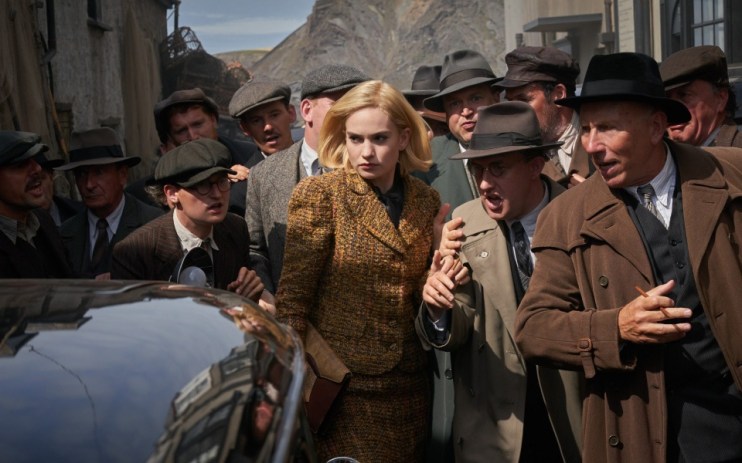Rebecca film review: Ben Wheatley directs Lily James and Armie Hammer but is too in thrall to Hitchcock

In a peculiar turn of events, Netflix has become the saviour of cinema. The streaming giant has become the highest profile pipeline for cinemas during this unprecedented fallow period.
Once seen as the death knell for the picture house, the company’s decision to give its Original Movies a brief theatrical run now provides cinemas with a welcome scheduling boost.
Following Aaron Sorkin’s The Trial of The Chicago 7 comes Rebecca, an expensive adaptation of Daphne Du Maurier’s novel directed by Ben Wheatley (Kill List, A Field In England, Free Fire).
Lily James (Cinderella) stars as The Second Mrs de Winter, an orphaned young woman living as a travelling companion to a wealthy old lady (Ann Dowd). While holidaying in Europe, she meets widower Maxim de Winter (Armie Hammer), sparking a whirlwind romance and marriage.
Once she arrives at Maxim’s Manderley estate, however, she begins to feel the presence of his late first wife, Rebecca. Struggling under the pressure of her memory, and the scrutiny of housekeeper Mrs Danvers (Kristen Scott-Thomas), The Second Mrs de Winter’s mind begins to unravel.
It’s always interesting to see what an independent director does with a bigger budget than they are accustomed to. Some take their style to a new level, others flounder with the influx of resources and responsibilities.
Wheatley falls somewhere in the middle: his Rebecca isn’t a failure by any means, but there’s little to distinguish it from any other period thriller, nor the many previous adaptations.
Comparing anyone’s work to Hitchcock is usually setting them up to fail, but like Rowan Joffe’s 2010 remake of Brighton Rock (starring Sam Riley, who also appears here), there’s little to suggest another cinematic version was required.
Every penny of that big Netflix cheque can be seen in the lavish sets, dramatic coastlines and ornate costumes, but while it catches the eye it falls short when it moves beyond the technical.
There was a lot of anticipation as to what Wheatley might do with such a story, zoning in on the psychological aspects of the novel or infusing horror into the narrative. Instead, it’s a rather safe, straight-forward retelling.
The director has stated that this is not a remake of the 1940 film, yet it seems afraid to stray too far from what’s come before. There are flashes of promise in James’ nightmare sequences, or Rebecca’s mirrored bedroom, but the film always snaps back into line, never deviating far from what’s expected. Ironically, this Rebecca is haunted by its predecessor.
James does her best to fill the void but both her and Hammer’s performances lean toward melodrama, lacking the depth that may have made this a compelling mystery. While they both look like they were born to the period, there’s little beneath the shouting and furious glares.
In any other context, Scott-Thomas’ loopy Danvers would be distractingly over-the-top. Here it’s a bit of a relief, with her Disney villain shrieks adding some spice to a film that, for the most part, is content to coast along.
In cinema terms, Netflix has always been at its best delivering the film’s other studios deem too risky. Roma, The Irishman, and Da Five Bloods are all howls of creativity from directors freed from the limits imposed by the need to sell cinema tickets.
It’s strange that, under the same circumstances, Ben Wheatley’s Rebecca really fails to distinguish itself, ending up another by-the-numbers remake to be lost in streaming queues.